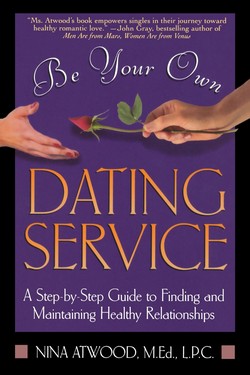Miserable and Parents: Should We Divorce?
By Nina Atwood
 Dear Nina: My wife and I have been married for 12 years and have two children – a 9-year-old boy and 7-year-old girl. We have a difficult, unhappy marriage. There’s no outward fighting or drama, and our young children may not know there’s a problem. But my wife and I rarely have meaningful talks or display affection. We’ve become essentially roommates. We would like to divorce but are worried about the impact on our young kids. Our marriage isn’t completely intolerable. So should we stay together for the kids’ benefit? Or should we consider our own (selfish?) desires and divorce? –Martin O., age 39
Dear Nina: My wife and I have been married for 12 years and have two children – a 9-year-old boy and 7-year-old girl. We have a difficult, unhappy marriage. There’s no outward fighting or drama, and our young children may not know there’s a problem. But my wife and I rarely have meaningful talks or display affection. We’ve become essentially roommates. We would like to divorce but are worried about the impact on our young kids. Our marriage isn’t completely intolerable. So should we stay together for the kids’ benefit? Or should we consider our own (selfish?) desires and divorce? –Martin O., age 39
Dear Martin: First, you are correct to be concerned about your children. There is no question that they will be affected by a divorce. Research shows that children of intact families fare better than children of divorce. They perform better in school, they tend to be physically and emotionally healthier, they are less likely to get involved in drug or alcohol abuse, they are more likely to go to college, and they are more successful later in life. If you can keep your marriage together, it will pay off big-time for your children.
For most struggling couples, there is no one incident that erupts and causes a marriage to deteriorate. Instead, there is a slow drift into a less and less satisfactory relationship. You didn’t start out that way—you clearly loved one another enough at one time to marry and create two children. Now you are faced with the question of what to do, but the framing of your question is limiting. Let’s expand that.
Frame the Situation Differently
The far better question to ask is this one: How can we turn around our difficult and painful relationship patterns and rekindle the love we once shared? You didn’t always feel the way you do. You once loved one another enough to marry. Where there was once love, there can be love again, and for the sake of your children, you should try.
A new way to frame this situation is from the perspective of “earning your way out.” What that means is that you begin with the intention of healing your relationship, open to the possibility of either rekindling your love or going your separate ways with grace and dignity. With that intention, you find a really good therapist who will coach you in how to communicate effectively – by far the biggest issue in marriages gone awry. The communication process will enable you to address your issues in a way that is respectful and also with greater emotional connection than you have been experiencing.
Earning your way out means closing the door on divorce while you go through marriage counseling. You don’t see other people, and you don’t make a unilateral decision to move on. You trust the process to reveal whether your differences can be resolved. You make the decision together about whether you will stay together. You apologize for your transgressions during the marriage, and you work toward forgiveness before you decide to divorce.
Don’t give up too early
I have witnessed couples who were convinced that their marriage was over, that there was no possibility that they could ever stay together, find their way back to the love they once shared. Far too many couples throw in the towel too soon, only to find out later that single life is very difficult when you are raising children. Co-parenting after divorce is also hard; you are partners as parents for the rest of your life so you will still have to work out many of your differences in order to do the best thing for your children.
If you can make a commitment to work on your relationship for a considerable period of time, you may create a way back to one another. But if not, you will be far better able to give your children a strong foundation from which to move forward in their own lives with as little pain as possible. From a place of forgiveness and healing, you demonstrate to your children that you gave it all you had to give, and that you honored your marriage the best you could. That will be the powerful legacy you give them.
If you decide to move on, use collaborative family lawyers. The collaborative process enables you to maintain the healing work you have done.
Note: this article was originally published by SingleDadHouse in Nina’s monthly column. For loads of resources for single dads, visit www.singledadhouse.com.
Entry Filed under: Advice for Men,Breaking Up,Divorce,Marriage,Relationships





